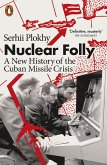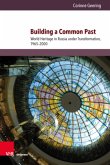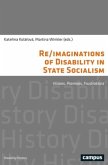Town twinning refers to the postwar phenomenon of administrative exchange between analogous municipalities. Cold War-related research has mostly interpreted it as an instrument to pursue European integration, or to solidify détente "from below". However, municipalities were not only administrative, neutral actors, but also bearers of political content. This is particularly visible in the case of Italian towns located in the Western bloc, guided by socialist-oriented administrations, and their "twin" counterparts in the German Democratic Republic.
This volume explores the connections initiated by such towns in the 1960s-1970s, focusing on socialist-specific conceptions which fueled the policies implemented by "red" municipalities, in managing local economies and social policies, but also in maintaining a lively and interconnected transnational microsociability among grassroots activists. Despite the increasing ideological divergences between Eastern and Western communists, and between Italian democratic communists and the more dogmatic and repressive, strictly pro-Soviet ones in the GDR, communication continued to flourish on the local level. The book explores what still linked the two worlds together, the "bright side of socialism": in this case, a common symbolism related to the past, practical exchanges in the present dimension, and a shared future imagination and conception of the town on the basis of a socialist horizon, built around welfare and services for citizens and workers.
This volume explores the connections initiated by such towns in the 1960s-1970s, focusing on socialist-specific conceptions which fueled the policies implemented by "red" municipalities, in managing local economies and social policies, but also in maintaining a lively and interconnected transnational microsociability among grassroots activists. Despite the increasing ideological divergences between Eastern and Western communists, and between Italian democratic communists and the more dogmatic and repressive, strictly pro-Soviet ones in the GDR, communication continued to flourish on the local level. The book explores what still linked the two worlds together, the "bright side of socialism": in this case, a common symbolism related to the past, practical exchanges in the present dimension, and a shared future imagination and conception of the town on the basis of a socialist horizon, built around welfare and services for citizens and workers.
"This book is a rich contribution to our knowledge of our not so distant past. It is informative, impressive in its use of archives, convincing in its arguments, balanced in its interpretations, and well written throughout." - Martin Zerlang, in: Connections. A Journal for Historians and Area Specialists, 02.02.2024, www.connections.clio-online.net/publicationreview/id/reb-134692.








